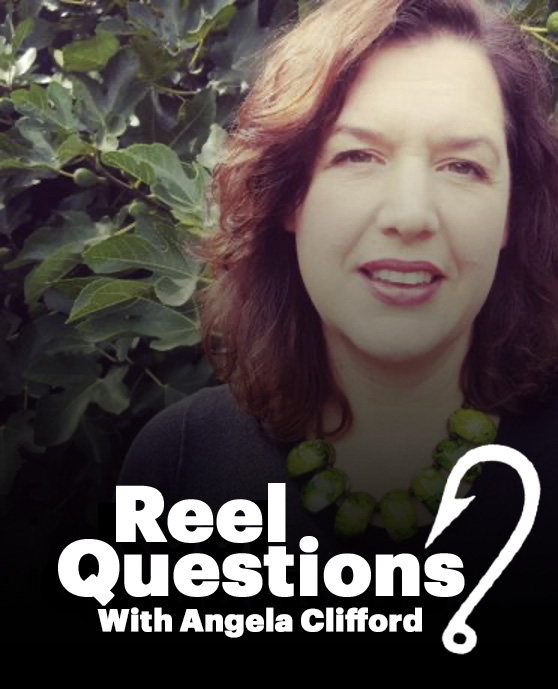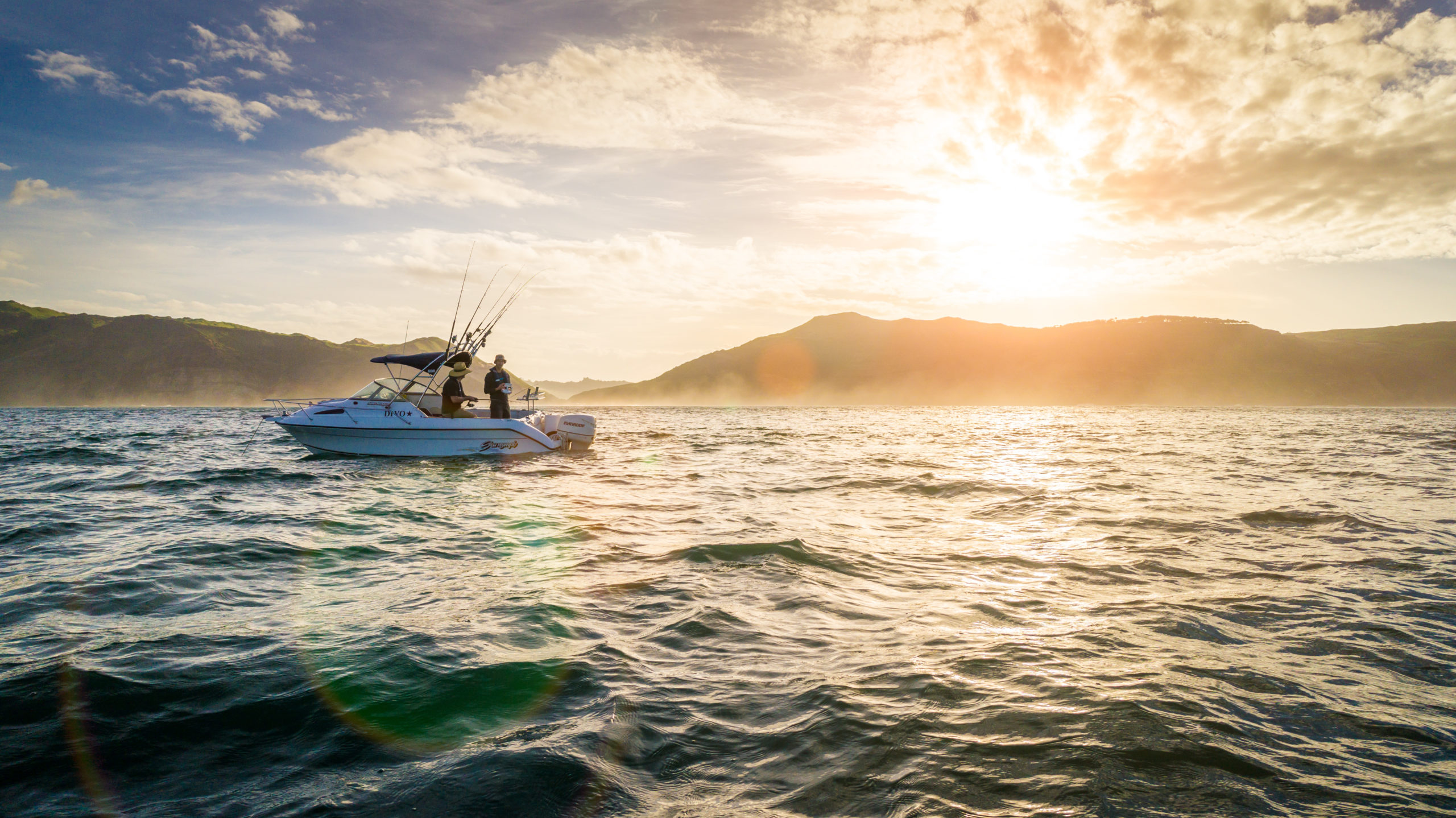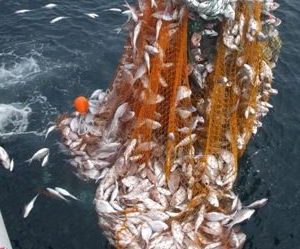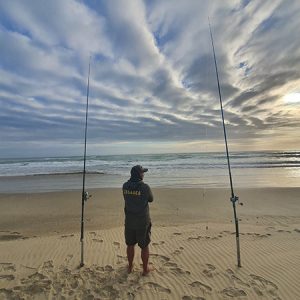Reel Questions is a commentary series providing an insight to the opinions and experiences of individuals who have ties with our fish life and marine environment whether it be their livelihood, playground, creative influence, culture or simply a part of their lives. They all have a varied relationship with our coast and fish.
 Angela Clifford is chief executive of Eat New Zealand, a collective of some of the country’s best producers, chefs, media, event organisers and tourism operators. Their mission is to connect people to our land (and ocean) through our food by highlighting the quality and vast array of edible resources available in New Zealand. It provides a forum to encourage and enable collaboration between all levels of the culinary chain and move towards more sustainable food systems.
Angela Clifford is chief executive of Eat New Zealand, a collective of some of the country’s best producers, chefs, media, event organisers and tourism operators. Their mission is to connect people to our land (and ocean) through our food by highlighting the quality and vast array of edible resources available in New Zealand. It provides a forum to encourage and enable collaboration between all levels of the culinary chain and move towards more sustainable food systems.
She is also the co-owner of an organic permaculture CSA property The Food Farm, with her husband and three children. She knows how to milk a cow in a paddock, gut a chicken, catch and fillet a fish, find porcini and grow field tomatoes.
1. Can you remember the first time you experienced going fishing as a child and or the first time seafood was prepared for your table?
Yes, my extended family had a bach in Yncyca Bay, Marlborough Sounds. Blue Cod and Snapper for days. We spent all our time in the water, finding freshwater koura in the streams that lead down to the bay, squealed as we fished conger eels from the end of the wharf, collected mussels from rocks at low tide, and were well schooled in the art of filleting the catch.
2. If we fast forward to today what would be the key differences your inner child might experience in both the fishing trip and how the seafood might arrive on the table?
Sadly, I suspect not so prolific in that part of the world now as is the case in many parts of coastal New Zealand. We do however continue to try and catch our own fish when the opportunity arises or source it from fishermen and women we know.
3. Remaining on the subject of seafood on the table, what is your favourite seafood and how do you like to prepare it?
So hard to choose a favourite! I love the accessibility of tuatua but who could say no to a fresh oyster or a local crayfish or a scallop eaten in situ on Rakiura? My children are learning to spearfish and freedive so anything they catch would always be my favourite.
4. Eat New Zealand is a passion for you. Fish is a quintessential New Zealand food. With technology and opportunity do you think kiwis have more access to, and are eating more or less of it today than we were say 40 years ago?
I suspect we ate more fish back then as fish and chips, local fishermen, and fishmongers were everywhere. Fish is a hugely important part of the New Zealand Food Story. We are a South Pacific island nation after all. And I think we’ve lost our way, with our connection to our kaimoana. I think a lot of this is because we no longer know our fishers.
5. From a restaurant perspective are you comfortable that our chef’s can access the best quality fish and range of fish from our amazing coastal resources?
Our best chefs are working hard on finding fish directly from our fishers. The last few years have seen huge changes in this space. Really grateful for the work of those small, regional based commercial fishers
6. Fish is a pretty unique wild resource in that it is freely accessible for every New Zealander if they wish to go and catch it themselves. However, are those that can’t catch it, or don’t wish to, getting the same sort of variety and quality fish out of the commercial industry?
Let’s talk about the term ‘commercial industry’. They are not a single entity. Just like recreational fishers, there are those who give the term a bad name and those who are all about doing the right thing for the future of the ocean and its inhabitants. Pigeon-holing makes me cringe. It’s demonising and divisive and does no one any favours long term. Let’s talk about people like the humans they are, or the individual situations they find themselves in.
7. Crayfish represents the highest value export by weight of any other seafood exported. This can result in it being out of reach for most New Zealanders. What are your thoughts on managing crayfish for the domestic sector, including tourism?
Well, I can point you in the direction of a number of small commercial fishers who are doing everything they can to supply their local market at reasonable prices. This builds a resilient long-term system. It’s definitely the path less travelled and they deserve all our support for their epic mahi.
8. Covid-19 is the obvious “elephant in the room” with supermarket shelves bare for a moment in time, how do you think it has impacted on our feelings about food security?
I think it’s made us think about it a great deal. For example we saw a huge increase in people getting local food deliveries such as vegetable boxes, and growing their own food.
9. Thinking about that answer in relation to seafood, where might it or should it, lead us?
Resurrect regional fisheries for the purpose of feeding our communities and telling our seafood story to those who are lucky enough to share our tables.
10. The loss of the tourist trade has hit the hospitality industry hard. When the international tourists come back, should we be focused on impressing them with our seafood in a different way to earn the international dollar or should we simply increase New Zealand seafood exports to impress?
Nothing speaks more powerfully than food eaten in context. Think about the most memorable meal you’ve ever had. Guarantee it’s as much about the people you were with and the place you had it in. We have this ‘culture of ingredients’ which works hard to pull our food away from its origin, and then slaps a generic ‘NZ’ label on it. The opportunity lies in spending this time to discover our own food culture, places and people, so we can all tell our stories when the borders reopen.
11. Kahawai, skipjack tuna and blue mackerel. These species are being exported in millions of kilograms, whole and frozen for less than $2 a kilo. Do you think a group of New Zealand chefs could help add value to those fish domestically and internationally?
Absolutely. Our chefs love the challenge and exploration of our fish species, especially the iconic kahawai. I think this journey is just beginning. For that reason, I think it’s important they have access to a broad range of fin fish, ethically caught from fishers they have a direct relationship with. That combination will make our kaimoana sing and shine a bright beacon to the rest of the world.





